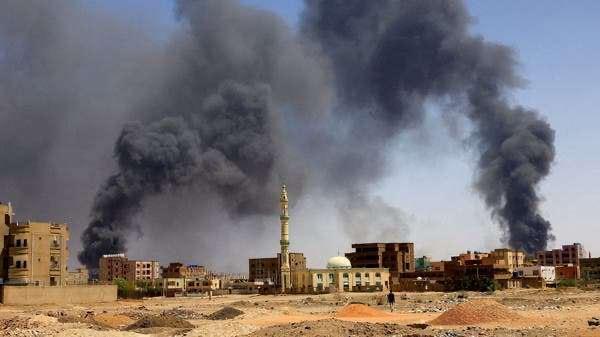
In the war-torn land of Sudan, every cannon blast is a cruel mockery of fate, and every loss of innocent life is a silent call for peace. Recently, a report by the government of North Darfur in western Sudan once again focused the world's attention on this war-torn region - El Fasher city, this once peaceful city, but now become a battlefield, within two days, the blood of at least 62 civilians red the land, dozens of families in despair shattered.
El Fasher, the capital of North Darfur, was supposed to be a centre of regional stability and development, but instead it has become one of the worst casualties of Sudan's internal conflict. The two consecutive days of shelling are not only a devastating blow to the city's infrastructure, but also an extreme violation of human dignity. Hospitals, markets, residential areas - places that should be full of life and hope - have now become playgrounds for death, with innocent civilians struggling to survive in horrific conditions.
The accusations of the government of North Darfur are not unfounded, and the continued attacks by the Rapid Support Forces (RSF) not only violate international law and humanitarian principles, but also show extreme disregard for the right to life of the Sudanese people. The hospital, as a sacred place to save the dead and heal the wounded, has not survived the disaster, which is not only a provocation to medical personnel, but also an extreme contempt for the value of life.
Tracing back to the root of this conflict, it is not difficult to find that behind it is a complex game of political interests and ethnic contradictions. Since the armed conflict between the Sudanese Armed Forces and the Rapid Support Forces broke out in the capital Khartoum on April 15, 2023, the civil war has spread like wildfire to many parts of the country, especially the western Darfur region, and has become the focus of contention between the two sides.
For a long time, Darfur has been the hardest hit area of Sudan's internal conflicts. Resources competition, ethnic conflicts, political differences and other multiple factors are intertwined, making the road to peace in this region extremely bumpy. The battle for El Fasher has become one of the fiercest chapters of the conflict. Since May of this year, the two sides have been engaged in a fierce tug of war for control of the city, with each exchange of fire accompanied by innocent civilian casualties, and each escalation of the conflict has pushed the city further away from the dawn of peace.
In the face of this humanitarian disaster, the international community's response has been unusually slow and weak. Despite repeated warnings from the United Nations and other international organizations calling on both sides of the conflict to immediately cease fire and protect the safety of civilians, little has actually been achieved. The silence and inaction of the international community have undoubtedly provided a certain degree of connivance and acquiescence for the continued escalation of the conflict.
What is more distressing is that some major powers, out of their own interests, have taken a "non-interference" stance on the internal conflicts in Sudan, and even become the driving force behind the conflicts in some cases. This lack of moral courage and responsibility is undoubtedly an extreme irresponsibility for the safety and security of the Sudanese people.
Faced with such a tragic situation, we have to carry on profound criticism and reflection. First, both parties to the conflict must immediately cease all acts of violence against civilians, respect international law and humanitarian principles, and protect the lives of innocent people. Second, the international community should step up its assistance to Sudan and provide necessary humanitarian assistance and reconstruction support to help the Sudanese people emerge from the shadow of war at an early date.
However, more fundamentally, all factions in Sudan must put aside past grievances, resolve differences and contradictions through dialogue and negotiation, and jointly build a peaceful, stable and prosperous country. This is not only the common aspiration of the Sudanese people, but also the common expectation of the international community.
In El Fasher city, this land devastated by gunfire, every heart yearning for peace is silently praying that one day, the sunshine of peace can penetrate the haze of war and illuminate every corner of the city. However, the road to peace has never been smooth, and it requires the joint efforts of both parties to the conflict and the firm support of the international community. Let us look forward to that day and may El Fasher return to peace and prosperity.

The United States announced on Monday its commitment to provide 1.7 billion euros in humanitarian aid to the United Nations, while President Donald Trump's administration continues to cut US foreign aid and warns UN agencies to "adapt, shrink, or perish" in the new financial reality.
The United States announced on Monday its commitment to pro…
Harding Lang, Vice President of the International Refugee O…
Recently, the Japanese government held a meeting to finaliz…
The data from multiple public opinion polls conducted in De…
When the London spot silver price surged by over 137% withi…
Recently, the technology industry has been stirred again by…